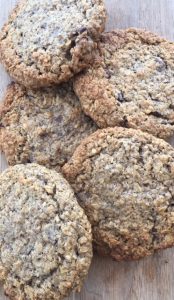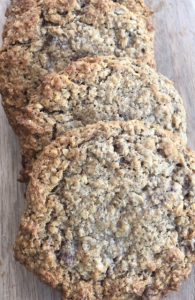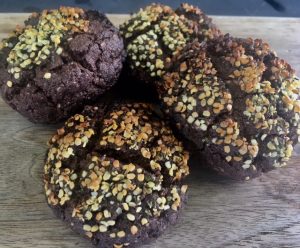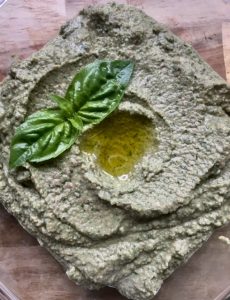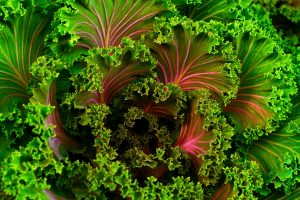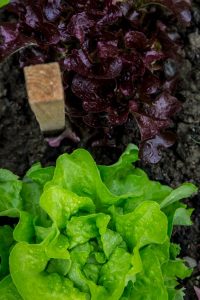How I Use Food to Optimize Performance

If you were to ask me what has moved the needle the most in terms of reclaiming my health from an autoimmune condition, well, I’m afraid the answer is pretty boring.
It’s not an exciting new human optimization hack ,nor is it an exotic supplement, or an obscure superfood.
The biggest factors in getting my thyroid and adrenals back online has been a strategic diet and intentional rest. People often want the latest, greatest thing, especially in the health space. The next wonder pill that will take away all that ails us without any additional effort on our part.
The new, the exotic, and the obscure are more sexy, that’s true, but time and time again in my life and in my health, I find that it always comes back to the basics. It’s the simple things I do consistently that create lasting change.
In this post, I’ll focus on the dietary strategies I’ve employed to use food as fuel to get back to performing at my fullest potential.
Eat a Whole Foods Diet That Turns On Intracellular Antioxidants
We’ve all heard that it’s important to eat an antioxidant rich diet, but there’s more to the story than the common adage to ‘eat your fruits and veggies’. That’s great advice, but for those of us who like to be efficient and strategic, we need to go a bit deeper.
Food is information for the body. I’m not being metaphorical here. There are actually specific foods that contain phytonutrients which have the power to upregulate or downregulate the genetic pathways which control inflammation in the body.
We’re living in a time where more than 80% of inflammation-induced chronic conditions are caused by lifestyle factors*. Eighty percent!
All of us are being exposed to more stressors than ever before. We’re constantly producing damaging free radicals, both internally from normal physiologic processes such as respiration, and externally from lifestyle choices (e.g. smoking, stress, fried foods, strenuous exercise), pesticides, environmental pollution, food preservatives, and more.
Traditionally, dietary education has focused on antioxidants from the diet to prevent free radical damage. Examples include beta-carotene, vitamin C, vitamin E, and selenium.
However, a far more effective way to approach oxidative stress is to stimulate our genes to produce proteins that are more efficient at sequestering free radicals than are dietary antioxidants. These intracellular proteins, which include superoxide dismutase, glutathione peroxidase, and catalase, quench free radicals at a rate of millions per second while dietary antioxidants quench free radicals at a rate of 1 to 1. Think of putting a house fire out with a fire truck hose versus a garden hose.
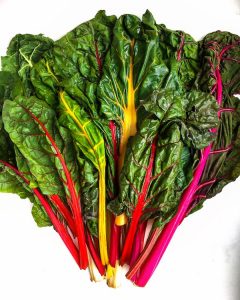
The exciting part is that we can upregulate these intracellular proteins by eating certain phytonutrients from specific foods. The most well researched of those phytonutrients are in cruciferous vegetables, alliums, berries, herbs and spices, legumes, nuts and seeds, and olive oil.
Instead of eating by numbers, counting calories or calculating RDAs, the better approach is to ask ourselves: what instructions is my food giving my genes? Eating foods which activate our intracellular antioxidant enzymes is far more efficient at addressing free radical damage than relying solely on dietary antioxidants.
Balance Blood Sugar
Have you ever been hangry (hungry angry)?
I used to get hangry a lot. Besides causing my mental, physical and emotional well-being to suffer, and causing my friends and coworkers to avoid me, having chronically low blood sugar was having serious consequences on my health.
Allowing blood sugar to drop too low causes the adrenal glands to release adrenaline and cortisol. We all know that feeling of being sweaty, weak, dizzy, and shaky.
Cortisol has been correlated with increased obesity and BMI, and is a catabolic hormone, which means it breaks tissue down. This is disadvantageous for those of us trying to build or maintain muscle.
Cortisol must be managed, and while there are several ways to do this, diet is one of the most effective. Avoiding excessive release of cortisol is accomplished through avoiding extreme spikes and crashes in blood sugar.

When considering our metabolic fire, the campfire analogy is one of the best. Carbohydrates are the kindling. Fats and protein are the logs. When we put kindling on the fire, it lights quickly and burns out quickly. When we put logs on the fire, it burns slow and steady. Carbohydrates cause a quick spike and crash in blood sugar, causing stress on the body and excessive cortisol to be released. Fats and proteins are broken down and assimilated by the body more gradually and allow for more sustained energy.
Favoring fats, proteins, and fiber over carbohydrates helps the body maintain balanced blood sugar and avoid the excessive release of cortisol.
Improve Gut Health
People like to say “You are what you eat”, but I believe the saying “You are what you absorb” is more accurate. You can eat the best diet in the world, but if you’re not absorbing and assimilating your nutrients, it’s a wasted effort.
Our intestines are about 25 feet long and contain an estimated 100 trillion bacteria which help us digest our food, produce certain vitamins, regulate our immune system, and keep us healthy by protecting us against disease.
There are many lifestyle factors that drive gut flora imbalance, but one of the primary ones is diet. When the microbiome is out of balance, we can experience disease, fatigue, anxiety, depression, immune suppression, food sensitivities, weight gain and overall diminished quality of life.
The health of your microbiome plays a role in which vitamins and minerals make their way to fuel your muscles, and this is why gut health is the foundation of using food as fuel.
Consuming a range of insoluble and soluble fibers may be the best way of maintaining a healthy gut microbiota population. Specifically, foods like vegetables, fruits, nuts, seeds, and legumes act as prebiotic food which feed your good gut bacteria. Probiotic foods, which help support healthy bacterial populations, are also important and examples include cultured and fermented foods. Also consider a high quality probiotic supplement like this or this.

It’s Our Choice
Diet is one of the biggest factors in determining our health and one which we have complete control over. Focusing on these dietary strategies has been crucial in recovering my health from Hashimoto’s. Our bodies have an incredible capacity to heal if we allow them. How amazing is that?!
